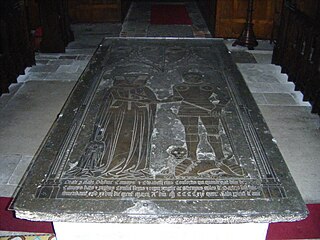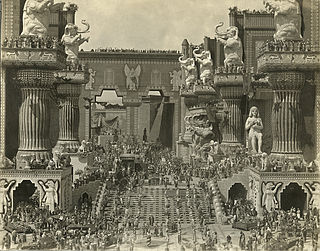
Sir Henry Percy KG, commonly known as Sir Harry Hotspur, or simply Hotspur, was a late-medieval English nobleman. He was a significant captain during the Anglo-Scottish wars. He later led successive rebellions against Henry IV of England and was slain at the Battle of Shrewsbury in 1403 at the height of his career.

Ralph Neville, 1st Earl of WestmorlandEarl Marshal, was an English nobleman of the House of Neville.

Henry Percy, 1st Earl of Northumberland, 4th Baron Percy, titular King of Mann, KG, Lord Marshal was the son of Henry de Percy, 3rd Baron Percy, and a descendant of Henry III of England. His mother was Mary of Lancaster, daughter of Henry, 3rd Earl of Lancaster, son of Edmund, Earl of Leicester and Lancaster, who was the son of Henry III.

Henry Percy, 2nd Earl of Northumberland was an English nobleman and military commander in the lead up to the Wars of the Roses. He was the son of Henry "Hotspur" Percy, and the grandson of Henry Percy, 1st Earl of Northumberland. His father and grandfather were killed in different rebellions against Henry IV in 1403 and 1408 respectively, and the young Henry spent his minority in exile in Scotland. Only after the death of Henry IV in 1413 was he reconciled with the Crown, and in 1416 he was created Earl of Northumberland.
Reasonable Doubt is a 1936 British comedy film directed by George King starring John Stuart and Nancy Burne. It was produced by the Hungarian Gabriel Pascal.

Appearances is a 1921 British drama film directed by Donald Crisp. Alfred Hitchcock is credited as a title designer. It is a lost film.
The South Carolina Review is a literary journal published by Clemson University. It was founded in 1968 as Furman Studies, edited by Professor Al Reid at Furman University and moved to Clemson in 1973, where it was initially co-edited by Richard J. Calhoun and Robert W. Hill. Early Managing editors were G. William Koon, Carol Johnston, and Frank Day.
Kentucky Moonshine is a 1938 film directed by David Butler and released by 20th Century Fox.

Elizabeth Mortimer, Baroness Camoys was an English noblewoman, the granddaughter of Lionel of Antwerp, 1st Duke of Clarence, and great-granddaughter of King Edward III. Her first husband was Sir Henry Percy, known to history as 'Hotspur'. She married secondly Thomas de Camoys, 1st Baron Camoys. She is represented as 'Kate, Lady Percy,' in Shakespeare's Henry IV, Part 1, and briefly again as 'Widow Percy' in Henry IV, Part 2.
The White Lilac is a 1935 British mystery film directed by Albert Parker and starring Basil Sydney, Judy Gunn, Claude Dampier and Percy Marmont.
The Triumph of the Scarlet Pimpernel is a 1928 British silent costume drama film directed by T. Hayes Hunter and starring Matheson Lang, Juliette Compton and Nelson Keys. It was based on the novel The Triumph of the Scarlet Pimpernel by Baroness Emma Orczy. It was made at Cricklewood Studios, with art direction by Clifford Pember.
The Amateur Gentleman is a 1920 British drama film directed by Maurice Elvey and starring Langhorn Burton, Madge Stuart and Cecil Humphreys. The film is adapted from the 1913 novel The Amateur Gentleman by Jeffrey Farnol.

Sir Edmund Mortimer IV was an English nobleman, landowner and rebel who played a part in the rebellions of the Welsh leader Owain Glyndŵr and of the Percy family against King Henry IV, at the beginning of the 15th century. He perished at the siege of Harlech as part of these conflicts. He was related to many members of the English royal family through his mother, Philippa, Countess of Ulster, who was a granddaughter of King Edward III of England.
The Duchess of Seven Dials is a 1920 British silent romance film directed by Fred Paul and starring Cecil Mannering, Marjorie Hume and Adelaide Grace. Its plot involves a young aristocratic woman who falls in love with a curate doing charitable work in the Seven Dials area of Central London. It was made by London Film Productions.
The Island of Despair is a 1926 British drama film directed by Henry Edwards and starring Matheson Lang, Marjorie Hume and Gordon Hopkirk. It was based on a novel by Margot Neville.
Afterwards is a 1928 British silent drama film directed by Lawson Butt and starring Marjorie Hume, Julie Suedo and Joseph R. Tozer. It was made at Bushey Studios, and based on a novel by Kathlyn Rhodes.
The Elusive Pimpernel is a 1919 British silent adventure film directed by Maurice Elvey and starring Cecil Humphreys, Marie Blanche and Norman Page. It was based on the novel The Elusive Pimpernel by Baroness Orczy.
Silent Evidence is a 1922 British silent mystery film directed by E. H. Calvert and starring David Hawthorne, Marjorie Hume and Frank Dane.
Her Redemption is a 1924 British silent crime film directed by Bertram Phillips and starring Queenie Thomas, John Stuart and Cecil Humphreys.









